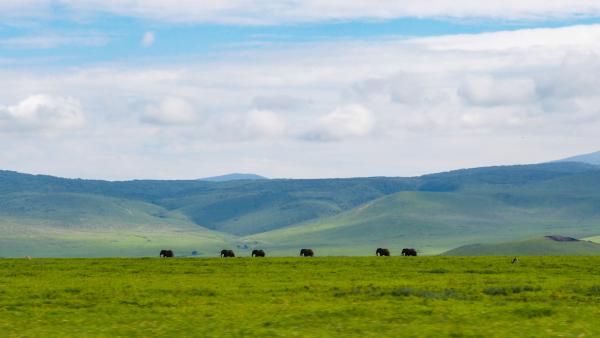If plants are intelligent beings, how should we relate to them? Do they have a place in our moral universe? Should they have rights?
nature
David Barrie is fascinated by how animals find their way. How do they travel thousands of miles across oceans or continents, to a place they've never been, without any other creature to show them the way?
Imagine driving over a hill and seeing hundreds of zebras or a thousand wildebeest. Anne and Steve were lucky enough to witness this spectacle in the Serengeti. Their expert guide, Moses Augustino Kumburu, describes the Great Migration.
Millions of animals migrate every year to a destination they've never seen. How do they do it — and what can we learn from them?
Wherever you live — city or country, East coast, West coast, or in between — we share common, contemplative experiences on our walks outside.
Magician Nate Staniforth has a dangerous idea for you. Tonight, after dark, go outside and look up to the sky.
Andreas Weber is a German biologist and philosopher with a highly unconventional way of describing the natural world, one in which "love" is a foundational principle of biology.
Dogs, cats, birds, frogs, even insects watch us. Each with a different kind of eye. What, and how, do they see? Ivan Schwab is an ophthalmologist who’s been fascinated by that question for a long time.








